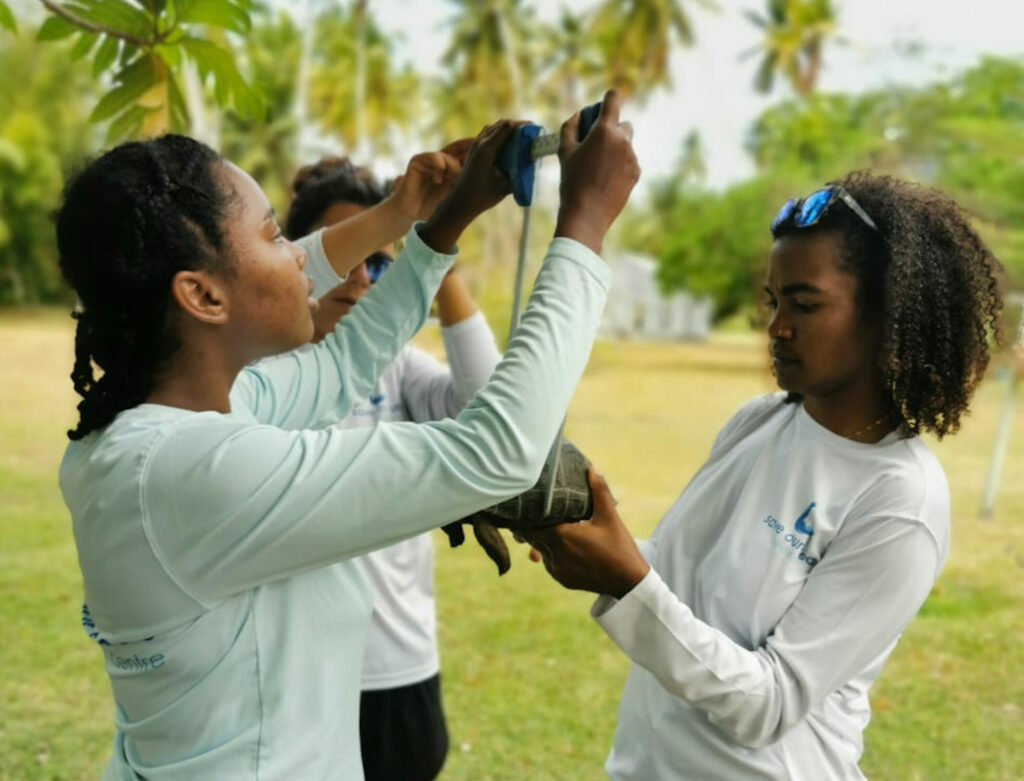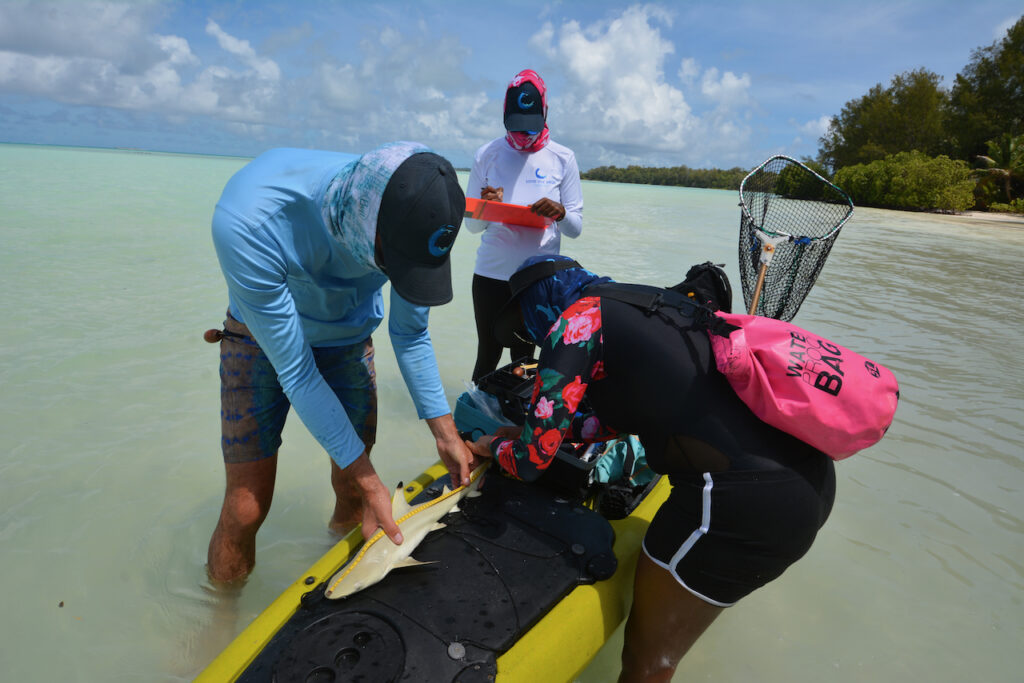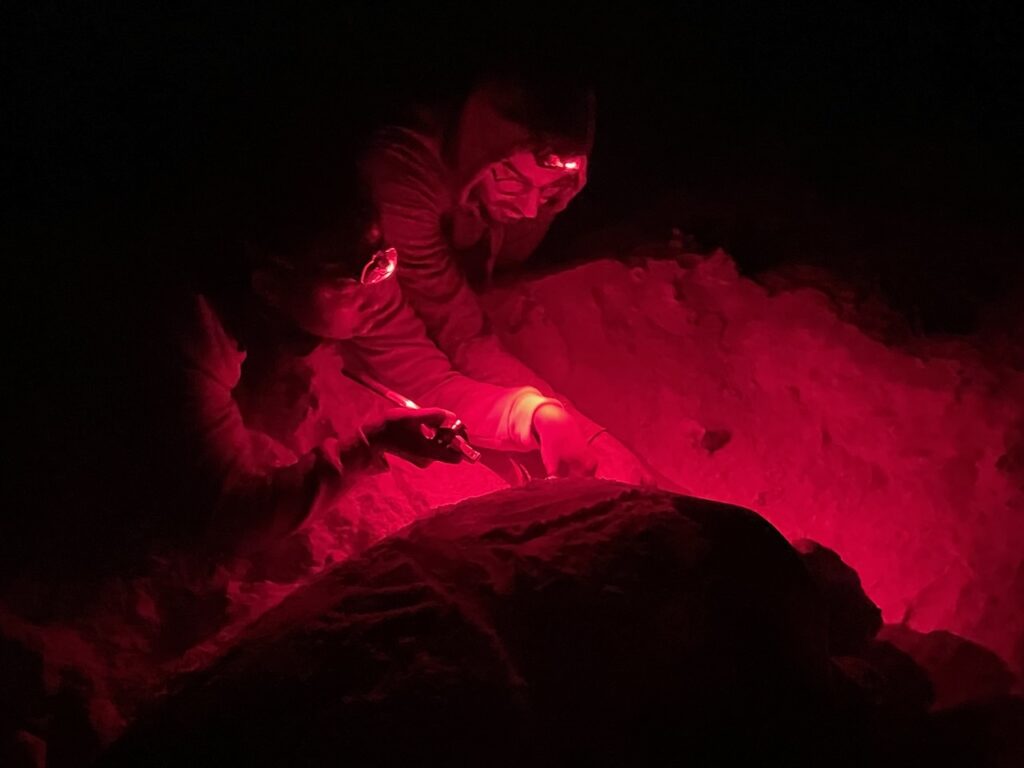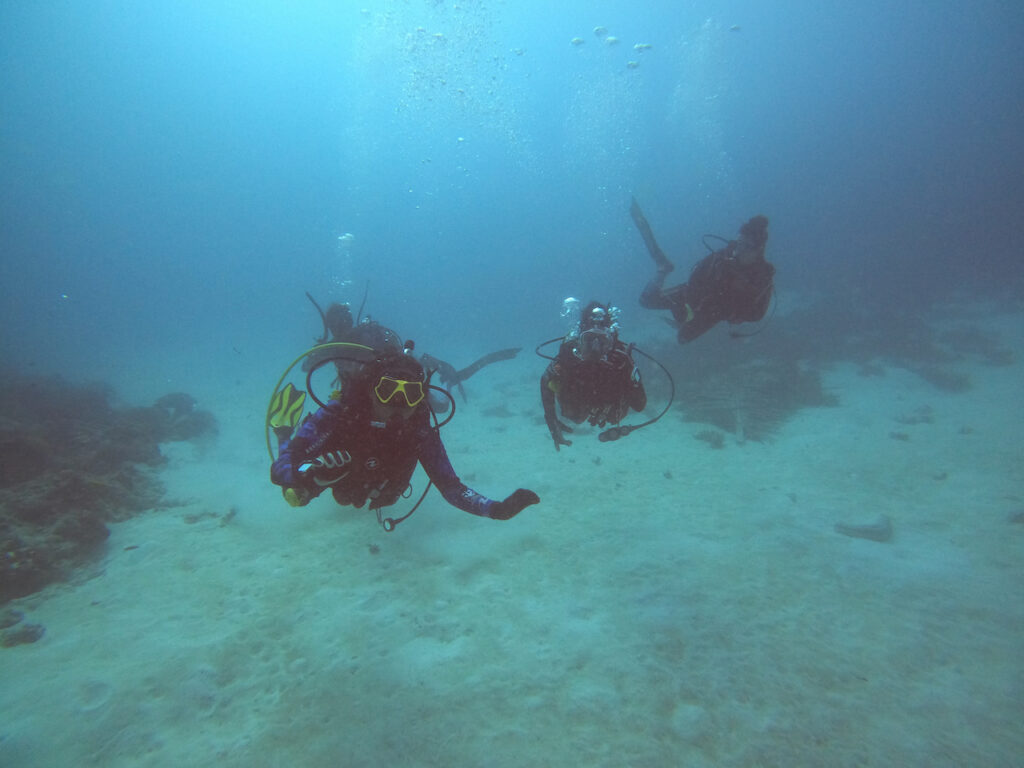An experience of firsts – Elgin’s internship perspective
My name is Elgin Créa and I am a 21 year old 3rd year student pursuing a Bachelor’s degree in Environmental Science at the University of Seychelles. I have always been an inquisitive and curious kid and over the years that curiosity spread into learning more about the environment and exploring the allurement of the natural world. In recent years I have strived to embrace the unknown and push myself out of my comfort zone to try new things which includes developing new skills helpful for my future in environmental conservation.

Measuring one of the small Aldabra Giants. Photo by Maryssa Samedi | © Save Our Seas Foundation
Interning at the SOSF D’Arros Research Centre was one of the most packed, informative and exploratory learning opportunities I have partaken in. Although I only spent two and a half weeks there, every day was filled with something new and exciting to experience. The first day of work we jumped straight in by going on a three day camping trip to St Joseph which is one of the islands in the atoll and from there we practiced juvenile shark tagging. With the guidance of the researchers I was able to learn how to work with efficiency to not stress the sharks once captured. It was a bit disorienting at first being very new to shark and ray tagging and having to get used to the method of capture and using the tools but it got easier with more practice.

University of Seychelles student Elgin Créa measuring a juvenile blacktip reef shark during a work-up for the juvenile shark project. Photo by Henriette Grimmel | © Save Our Seas Foundation
We also participated in nightly turtle walks which were my personal favourite as I’m always excited at the opportunity to see a turtle, especially a green turtle since Mahe is not a common place for nesting for that species and they mostly come up at night. This was my first time getting to see a green turtle nesting and the experience was better than I could have hoped for as the first turtle walk I went on in the atoll allowed us to witness an event that not even the SOSF-DRC had witnessed before. There were about a dozen or so turtles laid by the beach in the shallows of the water, just snoozing away. We suspected they were either tired after or waiting to mate with a nearby female green turtle. I was filled with amazement seeing so many turtles at once. Part of the team continued with the walk and I was able to observe how data is recorded and how to tag a turtle. To top of the night off we caught sight of bright comets lighting up the sky, another spectacle to behold uniquely on the atoll, where there is no light pollution.

Elgin tagging a nesting green turtle on St Joseph island. Photo by Henriette Grimmel | © Save Our Seas Foundation
After conducting the weekly monitoring there was also the responsibility of properly entering all of that data into the main database for future analysis. The task was fairly simple, but human error is to be expected, so double-checking is highly important. The most tedious task appointed would be Manta Ray identification which requires careful observation of pictures of spots underneath a manta, taken with a stationed underwater camera, and identifying exactly which manta ray was spotted at a specific place and time. This can be time consuming, especially as a newbie as it requires skimming through hundreds of already documented manta rays and matching it with the pictures taken. This gets harder as visibility underwater is not always great or the ray is too far from the camera to be easily identified. Nevertheless, it is good to gain familiarity with how manta rays are monitored and good training for species identification. Part of the manta ray monitoring is doing boat surveys and dives so I gained good practice in my diving as well as seeing the stunning coral reefs rich in marine life. Developing my skills as a diver is especially important for future endeavours in the marine sector so this was a great chance to learn from more experienced divers.

Elgin and team diving the manta reef cleaning station at D'Arros. Photo by Henriette Grimmel | © Save Our Seas Foundation
My time at D’Arros was nothing short of astounding and breathtaking. I appreciated everything from the serenity of the island to the SOSF-DRC team, which were so welcoming and patient in teaching how to properly do the tasks assigned. They were a great support whenever help was needed and amazing professionals. Each experience I gained here I hope to take with me wherever I go and treasure the memories made here.
